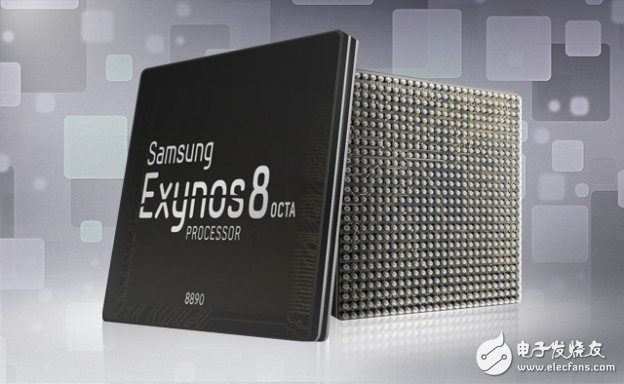In the face of the "big cake" in the smart car chip market, Intel, Qualcomm, Nvidia and other international chip giants launched a series of layouts, and launched their own smart car chip products, intending to seize this big cake.
Recently, South Korean media reported that Samsung will supply Audi's Exynos processor to create driverless cars from 2018. In fact, there have been news reports in early 2016. Samsung has set up a working group to develop driverless car chips and sensors.
Although Samsung's pace in the field of driverless cars is a bit slower than other chip giants, with the recent unmanned news, we will find that Samsung has begun to make new progress on car chips.

At the just-concluded CES 2017 show, we found that the chip giants have chosen to win over and form a stable strategic partnership with major car companies.
For example, NVIDIA, which specializes in GPUs, provides automotive chips for Tesla, and also has partnerships with a number of automotive companies; Intel also works with BMW and Mobileye; Volkswagen will use Qualcomm's automotive-grade smartphone chips for Volkswagen vehicles. The basis of electronic hardware.
When it comes to Samsung Electronics, the Korean company, our first reaction is to do mobile phones. Samsung Galaxy Note 7 mobile phone battery explosion caused serious damage to Samsung Electronics, but the smartphone is not Samsung's only product. The company has its own position in a variety of electronic products, such as home appliances, flagship processors and everyday mobile phones.
From the establishment of a chip group specializing in the development of driverless cars, to the acquisition of high-end audio manufacturer Harman International, and cooperation with Audi, Samsung continues to send good news in the field of automotive chips, it seems to tell us that Samsung Electronics will display The technology on the screen, processor, and sensor is applied to the car and continues to glow.
Exynos produced in the battle between Samsung and QualcommIn 2016, Qualcomm announced that it will work with Samsung Electronics to develop the next-generation flagship processor, the Snapdragon Snapdragon 835, which is said to be using Samsung's most advanced 10nm process. Samsung's 10nm process can reduce chip size by 35% compared to the previous 14nm process, while increasing performance by 27% and reducing power consumption by 40%. This data is really beautiful, but only after testing can you get accurate results.
In the past few years, Samsung has been trying to get rid of Qualcomm on its mobile phone processor and switch to its own processor. For example, the Galaxy S7 is equipped with the Snapdragon 820 processor, while the much-anticipated new-generation flagship Galaxy S8, the processor will be equipped with Samsung's own flagship Exynos 8895. According to the 2015 processor market data, Samsung's single processor with the Exynos 7420 ranks first with a share of more than 16%, while the 2014 champion is occupied by the Dragon 800. The share is over 35%.
In November 2016, Samsung and Audi signed the Exynos processor for the 20nm process. Based on the previous partnership, they are now ready to strengthen their cooperation, Samsung has come up with its first 10 nanometer Exynos processor. This is a big step forward in the cooperation between the two companies, and it is also a big step forward for Samsung to enter the smart car road.
Regarding the Samsung Exynos processor, everyone is looking forward to the release of the new Samsung flagship Galaxy S8 equipped with Exynos 8895, or is it more looking forward to the future use of Exynos processors in Audi unmanned cars?
Container Type Diesel Generator
Container Type Diesel Generator,Container Diesel Generator,Container Diesel Geneator Set,Container Type Diesel Generator Set
Jiangsu Vantek Power Machinery Co., Ltd , https://www.vantekpower.com
